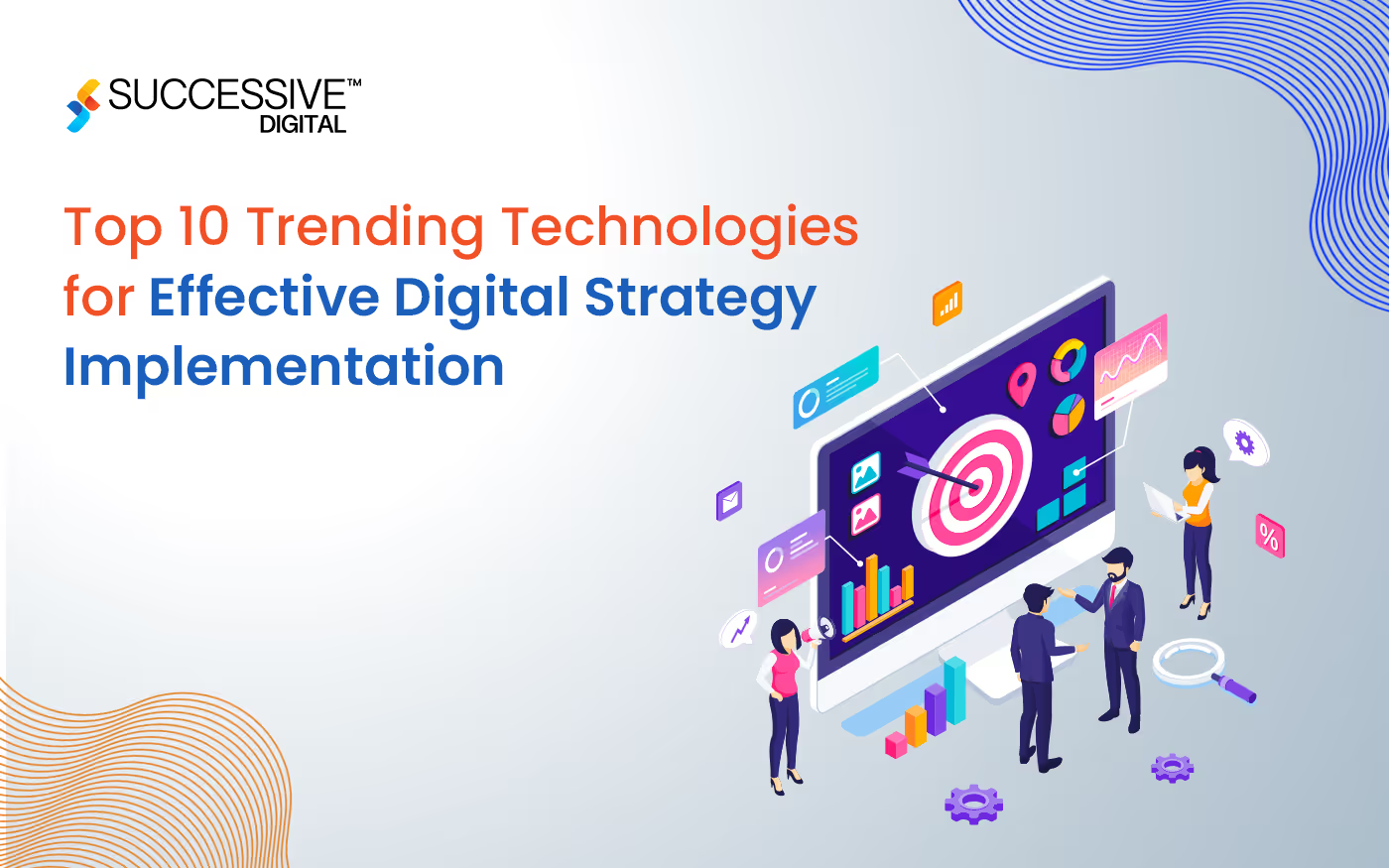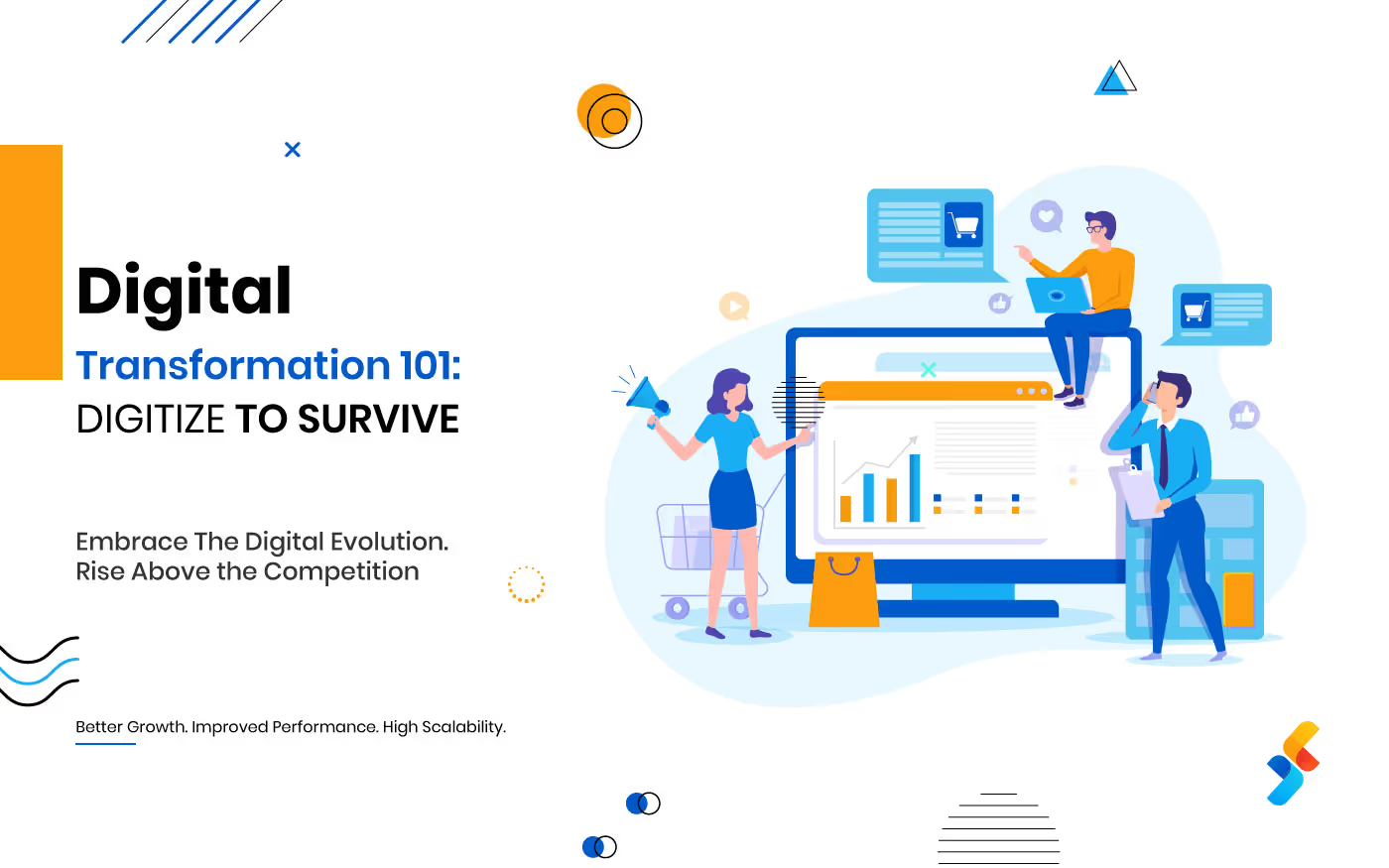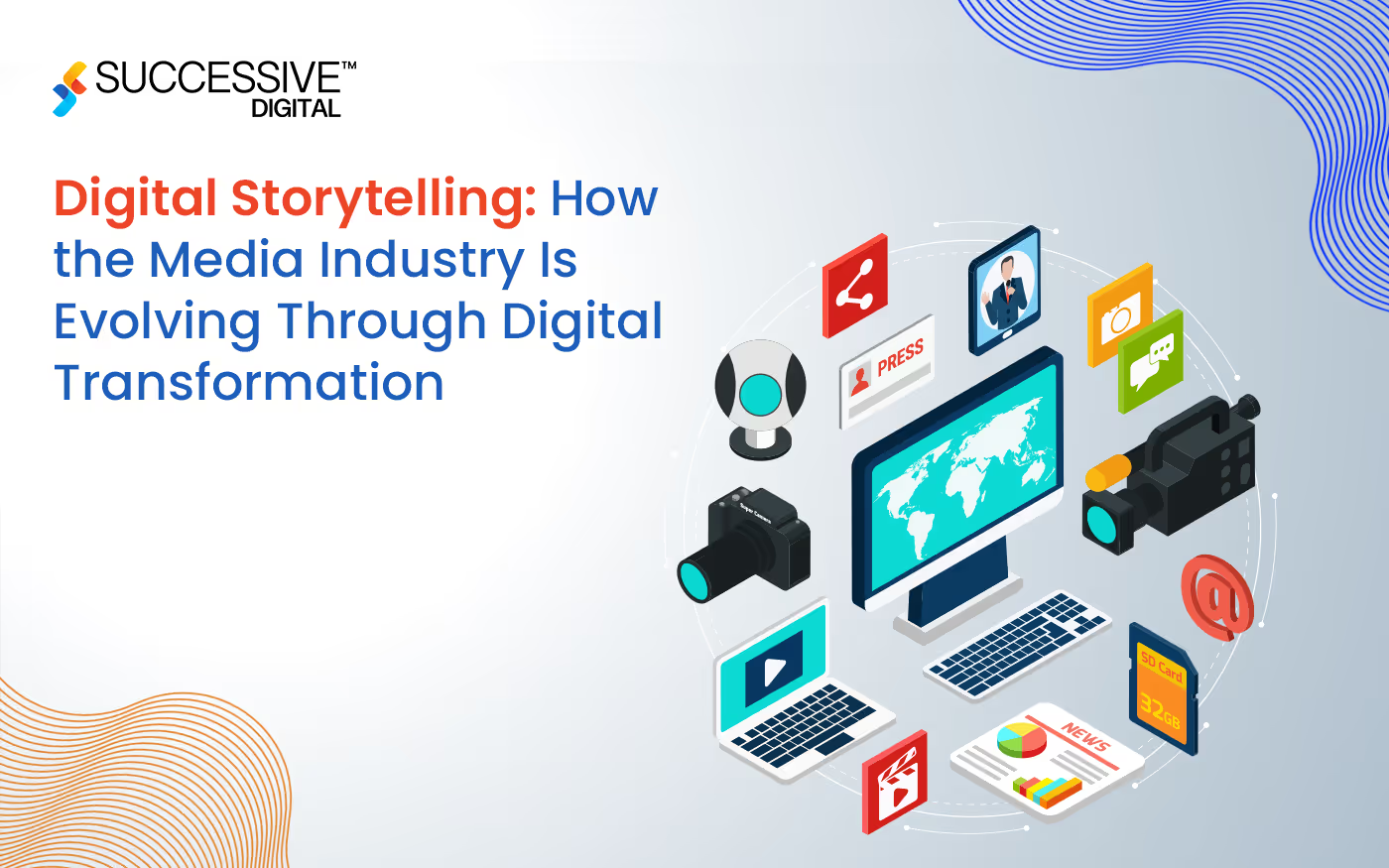In modern, fast-paced digital technology era, organizations' success hinges on their capacity to evolve to technological improvements and integrate them into their strategic frameworks. A well thought digital strategy implementation approach is no more a luxury for enterprises, but necessary for brands aiming to thrive in an increasingly competitive market. The convergence of rising technology is reshaping industries, streamlining operations, and improving consumer experiences. As a result, organisations must continue to be vigilant and agile, continuously updating their virtual techniques to leverage the latest technological innovations. This blog explores the top 10 trending technologies pivotal for effective digital strategy implementation in 2024. These technologies, with Artificial Intelligence (AI), IoT, blockchain, 5G, and more, offer unprecedented possibilities for organizations to optimize their strategies, scale overall business protection, and deliver personalized offerings. By understanding and adopting modern technology along with digital transformation services, businesses can meet present-day marketplace needs and predict future tendencies, ensuring long-term growth and sustainability.
- The Internet of Things (IoT)
IoT connects devices and systems, facilitating real-time data collection and analysis. Adopting IoT is a modern-day successful digital strategy implementation that improves operational performance by allowing intelligent monitoring, predictive maintenance, and seamless device communication. IoT is incredibly impactful in sectors like healthcare, manufacturing, and logistics.
Key Applications:
- Smart home devices and automation.
- Asset tracking and inventory management in logistics.
- Remote patient monitoring in healthcare.
Artificial Intelligence (AI) and Machine Learning (ML)
Leveraging AI along with digital strategy consulting services and advanced algorithms, businesses can analyse big datasets, uncover patterns and insights that foster strategic decisions. ML, a subset of AI, allows systems to learn from past data patterns and improve their performance over time without express programming. These technologies are extensively utilized in customer service through chatbots, predictive upkeep for manufacturing, and customer-oriented marketing campaigns.
Key Applications:
- Customer service automation through chatbots and virtual assistants.
- Predictive maintenance in manufacturing.
- Personalized marketing campaigns based on consumer data.
Blockchain Technology
Blockchain is recognized for its decentralized and secure nature, which extends beyond cryptocurrencies to revolutionize numerous industries. It enhances transparency and security by growing immutable transaction statistics. This technology is essential for supply chain control, ensuring record integrity, and permitting steady, tamper-evidence transactions in finance and other sectors.
Key Applications:
- Supply chain transparency and traceability.
- Secure and transparent voting systems.
- Fraud prevention in financial transactions.
5G Technology
Regarding digital strategy implementation, 5G technology represents the next-generation era of mobile connectivity, offering exceptional speeds and extremely low latency. It supports multiple devices, allowing advancements in smart cities, automobiles, and telemedicine. With 5G, businesses can improve real-time information exchange, scaling performance, and progressive growth.
Key Applications:
- Enhanced mobile broadband services.
- Real-time remote surgery and telemedicine.
- Autonomous vehicles and smart transportation systems.
Edge Computing
Edge computing brings computation and data storage closer to where they are needed the most, reducing latency and bandwidth utilization. This technology is essential for progressive digital transformation services, such as real-time processing and analytics, mainly in IoT programs. Edge computing supports deploying AI models at the edge, enabling quicker decision-making.
Key Applications:
- Real-time data processing in industrial IoT.
- Autonomous vehicles and drones.
- Smart city infrastructure.
Cybersecurity Enhancements
Cybersecurity enhancements are essential to counter the growing threat of cyberattacks. Advanced measures like AI-driven risk detection, zero-safety models, and blockchain-based total security systems ensure the robust safety of sensitive information. This technology assists organizations in protecting their digital belongings, maintaining brand trust, and observing regulatory requirements.
Key Applications:
- AI-driven threat detection and response systems.
- Zero-trust network access.
- Blockchain-based identity verification.
Augmented Reality (AR) and Virtual Reality (VR)
AR and VR technology assist in how organizations engage with customers and educate them. AR overlays digital information onto the real scenarios in world, while VR creates immersive virtual environments. These technologies are being leveraged in retail, training, healthcare, and entertainment.
Key Applications:
- Virtual try-ons and product demonstrations in retail.
- Immersive training simulations for employees.
- Virtual tours and remote collaboration in real estate.
Robotic Process Automation (RPA)
RPA automates repetitive, rule-based tasks, liberating employees for extra strategic tasks. It improves performance and accuracy in information access, invoice processing, and customer support. By robust digital strategy implementation of RPA, businesses can decrease manual attempts and minimizing errors, allowing significant cost reductions.
Key Applications:
- Automated data entry and processing.
- Invoice and payment processing in finance.
- Customer service automation.
Quantum Computing
Quantum computing promises to solve complicated challenges that can be past the abilities of traditional IT systems. Nonetheless, quantum computing is anticipated to revolutionize fields like cryptography, cloth technological know-how, and complex machine simulations at its nascent levels. Businesses that spend money on quantum computing research and development to benefit from a considerable competitive edge.
Key Applications:
- Optimization problems in logistics and supply chain.
- Drug discovery and development in pharmaceuticals.
- Advanced cryptography for secure communications.
Digital Twins
Digital twins are digital replicas of physical assets, systems, or processes that can simulate, analyze, and optimize actual real-world performance. This technology is especially beneficial in manufacturing, construction, and healthcare, where it could enhance efficiency, lessen costs, and improve decision-making.
Key Applications:
- Predictive maintenance and performance optimization in manufacturing.
- Smart city planning and management.
- Personalized healthcare and treatment planning.
Digital strategy implementation requires complete information on the latest trending technologies and how they may be adopted to obtain enterprise growth. The technology highlighted above—AI and ML, IoT, blockchain, 5G, edge computing, cybersecurity improvements, AR and VR, RPA, quantum computing, and digital twins— are leading transformative results. By integrating such technologies, along with professional digital transformation strategy consulting, organizations can enhance their operational performance, improve customer experiences, and sustain competitively in an increasingly digital world.
.avif)

.jpg)


















